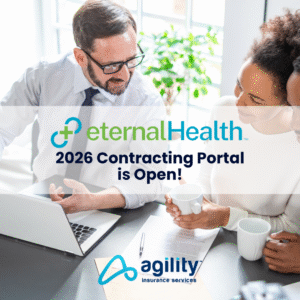Many agents have difficulty understanding ICHRA (Individual Coverage Health Reimbursement Arrangement). Watch an employer try to understand it, and watch their brain slowly melt.
ICHRA is one of the most valuable tools an agent brings to the table for employers when rate hikes, limited networks, and group plan fatigue factors in. How can you pitch ICHRA so that employers’ brains don’t melt and they just default to “we’ll just renew what we have?”
Lead With Their Pain, Not the Product
Too many agents jump into “ICHRA is a tax-free reimbursement vehicle that allows class-based plan designs” – don’t do it!
Start your conversation by uncovering where employers struggle with their current insurance setup. Find out if they:
- Are getting hammered with double-digit group renewals,
- Can’t afford to keep rich benefits but feel guilty stripping them down,
- Have multiple locations and can’t find a single carrier that fits,
- Are frustrated with employee complaints about narrow networks or “no one takes our plan.”
You can ask them:
“Tell me about your renewal this year—how bad was it?”
“Any pushback from employees on your current coverage?”
“Is offering benefits helping or hurting your ability to hire right now?”
The answers to those questions tee you up to offer ICHRA in a better way.
Make ICHRA Sound Human
Once you confirm their pain points and it’s top of mind for everyone in the room, now it’s time to fix the pain by saying something like:
“So, here’s a newer approach many employers are exploring. Instead of getting stuck with one group plan that may not fit everyone, you just set a monthly health benefit, say $400 per employee, and they get to choose a plan that fits them from the individual market. You reimburse them tax-free. It’s like a 401(k), but for health insurance.”
Keep it light and straightforward to avoid the acronyms (ICHRA, ACA, HRA, etc.) for now. You’re planting seeds for budget control and employee choice, two magic beans many owners want to grow in their business.
Clearly Show the Value
Once they’re intrigued and you have their full attention, walk them through the specific impacts on their organization. You can use phrases like:
- “You get to choose your budget and stick to it without more guessing at renewals.”
- “Employees get to pick from dozens of plans, not just one carrier’s lineup.”
- “You’re out of the insurance admin business; no COBRA, plan docs, renewals to worry about.”
- “We can use the classes feature in ICHRA to divide employees into different groups, like managers vs. part-time, or by different locations.”
As discussed in our case study article, talk about a real-life example to make this relatable and real for them: “I have a client with 35 employees across three states. Group coverage was a nightmare, and they couldn’t find a single plan that worked.
“We switched them to ICHRA, gave each employee $450/month, and now everyone has their own plan! The owner finally stopped getting complaints from the Texas office about the network.”
That story’s worth more than a thousand bullet points in any presentation.
Common Objections and Killer Responses
You will get questions or negative responses no matter how good your pitch is. Here are some options to successfully navigate them to a final “yes.”
Objection: “This sounds complicated”
Response:
“I totally get that, but the platforms make it super easy. We handle the setup, employee education, and compliance for you. You decide how much you want to offer and approve reimbursements once a month. It’s way simpler than renewing a group plan every year.”
You can also show a screenshot of the dashboard or platform to walk through these items step-by-step, showing them how easy it is.
Objection: “What if employees don’t know what to pick?”
Response:
“Great question. We’ve licensed advisors who help employees find the right plan based on their doctors, prescriptions, and budget. This program provides more individual flexibility than an employee receives from a traditional group plan.”
Objection: “Isn’t this just shifting the burden to employees?”
Response:
“No, because you’re still giving them a health benefit with more flexibility. Instead of forcing them into a one-size-fits-none plan, employees get to pick what’s best for their situation. And they’re using pre-tax dollars, just like they would under a group plan.”
Offer to survey employees before switching, using the descriptions you provide the employing organization to inform them about the ICHRA program and how it works for them. If the survey shows that most employees prefer choosing their own plan, the program works for employees and employers.
Objection: “Can this meet the employer mandate?”
Response:
“Absolutely, as long as your budget meets affordability and minimum value guidelines, ICHRA satisfies ACA requirements like a group plan. And we help you model that to ensure you’re good to go.”
Run the Numbers as the Close
If they’re still on the fence, this is your closer.
- Model out their current renewal vs. an ICHRA design.
- Show them different budget levels and how they impact total cost.
- Build an easy-to-understand scenario to show them what success can be:
“If you gave every full-timer $500/month, that’s $180,000 a year. You’re paying $245,000 now for a plan most people don’t love.” Let the math speak.
Final Tips for Closing the Deal
- Bring a sample platform to demonstrate or partner with a TPA who supports brokers.
- Offer a pilot—roll it out to new hires or a single location first.
- Give them a one-pager to share with their team or CFO.
- Follow up with case studies—even a quote from another business owner helps.
- You’re Solving a Business Problem – when you pitch ICHRA correctly, you’re giving employers a way to:
-
- Rein in costs,
-
- Modernize their benefits,
-
- Offload admin headaches.
For you, ICHRA is a chance to stand out with an innovative solution for employers who are sick of the group plan rat race.
Contact Agility at (866) 590-9771 or email support@enrollinsurance.com to help you:
- Build your ICHRA pitch deck,
- Build your ICHRA models
- Develop objection answers,
- Build comparison tools employers need to see to reach “yes” to build your agency’s book of business.
Agility can also add you to our free weekly email list for tips and vital information!



